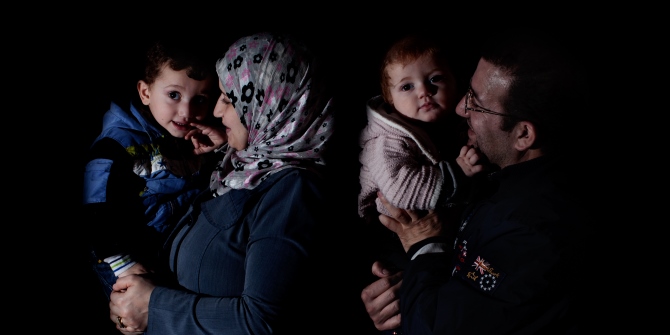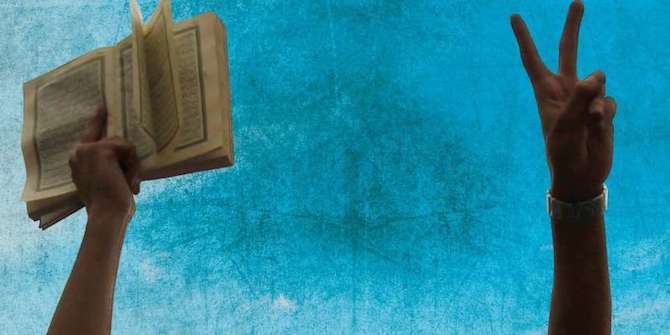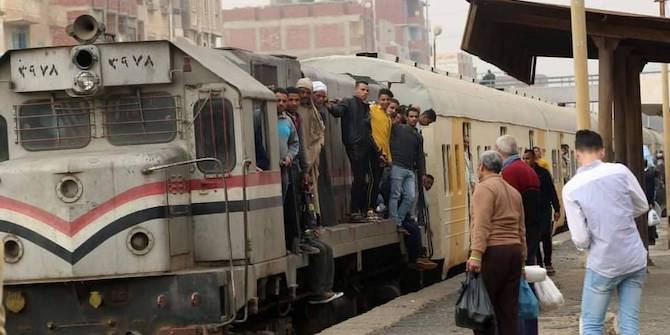by Fernando de Medina-Rosales

For more than two decades, the Norwegian Refugee Council (NRC) has assisted displaced persons to access civil registration and identification documents. During 2018, NRC assisted approximately 527,000 individuals worldwide with this issue. We provide information on rights, procedures and remedies; enable legal advice and representation before government entities; support women’s access to documentation; and, in some contexts, make cash transfers complementing these initiatives. This area of humanitarian work has evolved from what initially appeared as a rather mechanical provision of assistance to obtain documents or access registries, to a multi-dimensional area of intervention, increasingly involving advocacy for policy change.
NRC’s work highlights how problems in accessing identity documents, including civil registration, may be linked to the underlying reasons for conflicts to erupt (e.g. in the Ivory Coast, where the concept of “ivoirité” excluded many descended from migrant workers from recognition as Ivorian). In other contexts, marginalised minorities may be particularly vulnerable after displacement, because they previously lacked access to official documents, like the Maktoum Kurds from Syria.
Access to registration and identification is not only often a pre-condition to enjoying rights and basic services, like freedom of movement or access to education, but also to accessing humanitarian assistance when populations are displaced. NRC provides services directly to those affected so they can overcome these barriers, but it also aims to contribute to systemic changes by advocating policy reform and building the capacities of local authorities so they can fulfil their obligations.
To this end, NRC has undertaken research to understand the underlying reasons behind the barriers faced by displaced persons and to formulate better and more effective responses. NRC is not only concerned with the obstacles faced by these populations, but it also looks into which rights and services are dependent on having access to civil registration or identification documents.
The research shows a diverse mix of legal, bureaucratic and practical obstacles, as well as discriminatory practices. Legal requirements – not necessarily discriminatory in intent – can frequently become insurmountable obstacles for displaced persons. For instance, in the Central African Republic registering a birth after the administrative deadline requires a court procedure which is costly and complex. Many civil registration centres were destroyed during the crisis that erupted in 2012, and many displaced persons lost their documents, meaning that the foundation documents for parents to register a birth are also missing. In other contexts, discrimination is deliberate and targeted at certain minorities; as in the case of the gender and ethnic discrimination endorsed by the citizenship law in Myanmar, enabling the expulsion of the Rohingya.
Lack of information about legal requirements and procedures is also a common problem across most country contexts. At the same time, discrimination, whether in law or in practice, also constitutes a serious problem. In many places, like Afghanistan or Syria, social norms mean that women struggle to obtain identity documents for themselves or their children without a husband or father to support that process.
Another structural barrier that is mentioned in most of NRC’s research is the costs that displaced persons need to cover to obtain documents. Transportation to government facilities, fees and other costs like copies of documents or photographs are often prohibitive for displaced persons whose main concern is to use resources to cater for basic needs in their homes. Unlike non-displaced populations, displaced persons often can only obtain documents in their place of origin, and security concerns or lack of resources make the journey difficult. This is an obvious problem for refugee populations, but internally displaced persons – despite not having crossed a border – also face the same issues in countries like Myanmar or Afghanistan.
The knock-on effect that a lack of documents can have in obtaining other documents or registering life events in civil registries is mentioned in all country reports. Often, displaced persons cannot produce documents because they have lost them – or they never had them – and they end up in a vicious cycle of un-documentation and lack of registration. For instance, in Jordan or Lebanon, an official proof of marriage is required to register births, and many Syrian refugees lack it and cannot obtain it – as documented also in the research in Morocco and Egypt sponsored by the LSE. In Afghanistan, identity documents known as “tazkeras” are required to register vital events, like marriage. Yet, NRC research shows that displaced women are far less likely to obtain a “tazkera” than women who are not displaced. In other contexts, displaced persons who do not have documents that prove identity and/or status will be afraid of approaching government offices to initiate procedures since they could be stopped by law enforcement officials and arrested or harassed. NRC has documented this problem in Kenya where refugees’ vulnerability is heightened if they lack documents that prove identity and/or status, or if police officers do not recognise the validity of their documents.
NRC’s research also supports the research findings of the collaborative research project led by Bronwen Manby at LSE, on the negative consequences of the absence of civil or identity documents on access to rights and services. For example, in the Central African Republic, children are able to enrol in schools but cannot register to take exams as long as they do not have a birth certificate. In Myanmar, enrolling in school is not possible without a birth certificate. In Afghanistan, marriage certificates and “tazkeras” are essential for women to secure housing, land and property. In 2015, NRC in Jordan reported that having a Ministry of Interior card was a requirement for refugees to access humanitarian assistance. The card confirms that its holder is officially entitled to live outside refugee camps and move freely throughout Jordan. It contains identifying personal information, such as the holder’s name and date of birth, as well as biometric data. Syrian refugees without Syrian passports or identity cards or Syrian refugee children without birth certificates struggle to obtain a MOI card.
NRC’s reports include recommendations to governments, UN agencies and other humanitarian actors with the aim to alleviate the obstacles that displaced persons face when accessing civil and identity documents. Governments are asked to change or soften administrative practices that particularly affect displaced persons such as unaffordable fees, evidentiary requirements to obtain documents (e.g. Syria or Jordan) and having to return to the place of origin to obtain documents (e.g. Afghanistan or CAR). Generally, most reports include recommendations to governments to provide accurate and updated information about procedures to access identity documents and civil registration. NRC also requests that governments and humanitarian agencies do not require that displaced persons produce identity and other documents to access essential rights and services. Freedom of movement, access to education or access to humanitarian assistance should not be conditional on having identity documents. NRC calls upon UN agencies to support governments in addressing these issues and to continue supporting civil society to deliver assistance to individuals and communities.
 Fernando de Medina-Rosales is Global Adviser on Information, counselling and legal assistance at the Norwegian Refugee Council. A lawyer by background, Fernando has dedicated his professional life to work on human rights and rule of law in conflict and development contexts, specialising on housing, land and property and legal identity.
Fernando de Medina-Rosales is Global Adviser on Information, counselling and legal assistance at the Norwegian Refugee Council. A lawyer by background, Fernando has dedicated his professional life to work on human rights and rule of law in conflict and development contexts, specialising on housing, land and property and legal identity.
This blog post and the others in the series are based on presentations during a workshop convened by the MEC on 1 March 2019 discussing statelessness and legal identity in the context of migration. @BronwenManby
In this series:
- Preventing Statelessness among Migrants in North Africa and their Children: Birth registration and ‘legal identity’ by Bronwen Manby
- State Obligation to Establish Legal Identity in Comparative Perspective by Alenka Prvinšek Persoglio
- Civil Registration and Legal Identity in Humanitarian Settings by Ann Livingston
- Preventing Statelessness among Undocumented Migrants: The role of the International Organization for Migration by Anne Althaus & Laura Parker
- From Birth Registration to Confirmation of Citizenship: Is the UK process the model to aspire to? by Elan Schwarz and Brianna Gomez
- What is the Fuss over the UN’s Global Compact for Safe, Orderly and Regular Migration? by Elspeth Guild
- When Identity Documents and Registration Produce Exclusion: Lessons from Rohingya Experiences in Myanmar by Natalie Brinham
- Consular Protection, Legal Identity and Migrants’ Rights: Time for Convergence? by Stefanie Grant
- Obstacles to Accessing Civil Registration and Identification: NRC’s Field Experiences with Displaced Persons by Fernando de Medina-Rosales
- Defining Identity and Identifying Migrants in the Global Compact for Migration by Tendayi Bloom






